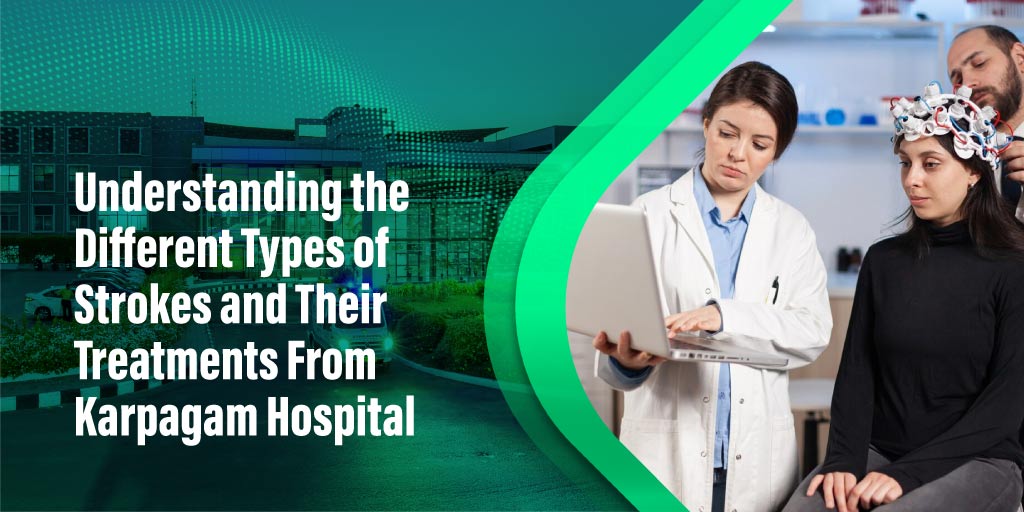Migraines are more than just a bad headache. These are a complicated neurological disorder that affects millions of people globally and frequently renders its victims severely disabled. For migraines to be effectively managed and treated, it is essential to understand migraines and their triggers. This blog will cover the causes, symptoms, and typical triggers of migraines and how the best neuro specialist in coimbatore helps to control and reduce these excruciating occurrences.
What are Migraines?
Migraines are severe, throbbing headaches that usually affect one side of the head, however, they can occur on both. They frequently come with severe light and sound sensitivity, nausea, and vomiting. Migraines greatly interfere with daily tasks and might last for hours or even days.
Types of Migraines
Migraine with Aura: These migraines contain auras, which are sensory disruptions that can be verbal (speech difficulties), visual (flashes of light or blind patches), or sensory (tingling in the hands or face).
Migraine without Aura: The more prevalent type of migraine that doesn’t involve premonitory sensory abnormalities.
Chronic migraine: One that lasts longer than three months and occurs at least fifteen times a month.
Hemiplegic migraine: An uncommon kind that momentarily paralyzed one side of the body.
Retinal Migraine: One eye may have transient blindness or visual abnormalities due to retinal migraine.
Symptoms of Migraines
Migraines often develop through four stages, however, not everyone experiences all of them:
Prodrome: Occurs a few days or hours prior to a headache. Changes in mood, stiff neck, yawning frequently, and food cravings are some of the symptoms.
Aura: Visual disturbances, changes in senses, or trouble speaking can happen either before or during a migraine.
Attack: The stage of a migraine where the actual headache appears; symptoms include throbbing pain, light and sound sensitivity, nausea, and vomiting.
Postdrome: People may experience mood swings, weakness, and a sense of exhaustion or confusion following a headache.
Common Triggers of Migraine
A key strategy in migraine management is recognizing and avoiding triggers. Although each person’s triggers are unique, common ones include:
Stress: One of the most frequent causes is emotional stress. Migraine frequency can be decreased by using stress management practices such as yoga, meditation, or counseling.
Hormonal Changes: Specifically in women, fluctuations in estrogen levels can be the cause of migraines. This is frequently seen during menopause, pregnancy, or menstrual cycles.
Dietary factors: A number of foods and drinks, particularly red wine, aged cheeses, processed foods, caffeine, and foods containing chemicals like MSG, can cause migraines.
Sleep Patterns: Migraines can be brought on by either too much or too little sleep. It’s critical to keep a regular sleep routine.
Environmental Factors: Shifts in weather or barometric pressure, bright lights, loud noises, and strong smells can all cause migraines.
Physical Factors: For certain people, even moderate physical activity might cause migraines.
Medication: Some drugs can cause migraines, especially those that widen blood vessels.
Diagnosing Migraine
A comprehensive medical history and physical examination are necessary for migraine diagnosis. Imaging tests such as MRIs and CT scans may also be used by doctors at Karpagam Hospital to rule out other possible causes of headaches. Maintaining a migraine journal can be beneficial in recognizing trends and triggers, offering important details for diagnosis and therapy.
Treatment for Migraine
A variety of medications and lifestyle modifications are suggested by the neurologists in Coimbatore in the treatment of migraines. The treatment plans at Karpagam Hospital are customized to meet the needs of each patient using a multidisciplinary approach.
Medications
Pain Relievers: Over-the-counter drugs such as aspirin or ibuprofen can be helpful, but they should be taken carefully to prevent headaches caused by misuse of medications.
Triptans: Prescription drugs that obstruct the brain’s pain pathways.
Anti-nausea drugs: These are used to manage vomiting and nausea.
Preventive medications: These are pharmaceuticals that try to lessen the frequency and intensity of migraines.
Lifestyle Modifications
Regular Exercise: Physical activity on a regular basis can help lower stress levels and enhance general health, which could reduce the frequency of migraine attacks.
Healthy Diet: Keeping a balanced diet and avoiding recognized food triggers might help control migraines.
Sleep Hygiene: Maintaining a regular sleep pattern and setting up a comfortable sleeping environment.
Stress management: Mindfulness, meditation, and cognitive-behavioral therapy are a few helpful strategies.
Alternative Therapies
Acupuncture: Based on certain research, acupuncture may help lessen the frequency of migraine attacks.
Biofeedback: This method teaches people how to regulate specific bodily processes, which can help them cope with pain.
Herbal Supplements: There has been some evidence that supplements including feverfew, magnesium, and riboflavin can help avoid migraines.
Comprehensive care that tackles the underlying causes of migraines as well as their symptoms is the main focus at Karpagam Hospital. The hospital provides a number of services, such as:
Specialized Clinics: Pain management and neurology experts staff dedicated to migraine clinics.
Diagnostic Services: State-of-the-art diagnostic and imaging equipment for precise migraine diagnosis and tracking.
Personalized Treatment Plans: Specifically designed regimens that incorporate medication, dietary adjustments, and complementary therapies.
Patient education: Providing resources and conducting workshops to inform patients about migraines and practical treatment options.
Support groups: Organized gatherings led by professionals where sufferers can exchange tales and coping mechanisms.
Migraines are a painful condition that demands a complex care strategy. Patients at Karpagam Hospital can take charge of their migraines and enhance their quality of life by consulting with the migraine specialists in coimbatore. If you or a loved one has migraines, think about speaking with the professionals at Karpagam Hospital to learn more about your choices for treatment.






